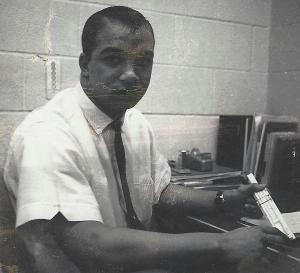NHS member and Bellwood resident Craig Butler ’20 to attend University of Wisconsin – Madison on a full-tuition “ride” from the Posse Foundation.
By Mark Vruno
Craig Butler, a senior at Fenwick High School, has been named a 2020 Posse Foundation Scholar. Butler will receive a full-tuition scholarship to the University of Wisconsin – Madison, which is one of nearly 60 schools that collaborates with the Posse program. “It’s crazy. I thought it was a dream,” admits Butler, who commutes to Fenwick from Bellwood, IL.
“I was going home after school when I got the phone call from Posse,” he says. The 17-year-old was not sure what to expect. “I explained to the person why I thought Wisconsin was a good fit for me, and he said, ‘Craig, we have good news for you. You’re a Posse Scholar!’ I was somewhat surprised because I know only about 10 students from Chicago get it [the scholarship] to UW.”

The first call Butler made to share the big news was to his mother. “My Mom was so excited and proud,” he reports. “She knows my personality and how I work well with others. She’s always so optimistic.” The second call Butler made was to Mr. Daryl Richardson, his mentor at LINK Unlimited Scholars, who nominated him for the Posse leadership scholarship.
Fenwick Class of 2020 Counselor Emily Anderson praises, “Craig is an incredibly determined, hard-working and deserving individual. I couldn’t be more excited for him. He will be among the first in his family to attend college, and I have no doubt he will prove himself to be a grateful recipient of the Posse Scholarship.” After applying, Butler progressed through an intense, three-stage interviewing process, explains Ms. Anderson.
The speedy Butler runs track for the Friars, making All-Catholic League in the long jump his first year. He tried out for the football team as a senior this past fall. A versatile student-athlete, Butler also is a member of the Fenwick chess and bowling teams as well as the National Honor Society (NHS) and Black Student Union. “Craig has volunteered his time every Tuesday morning to Friar Mentors, providing tutoring for those who need help in Spanish,” Anderson notes.
Outside of Fenwick, he is a recipient of the LINK Unlimited Scholarship and has been awarded its Academic Gold-Tier for his classroom success. Butler also won the 2019 Nissan Resume Challenge.
“Craig is a kind, thoughtful and respectful individual,” Anderson concludes. “I am in awe of all that he has been able to accomplish — and he has done so with grace and tenacity.”
About the Posse Foundation

The Posse Foundation was founded in 1989 because one student was heard saying, “I never would’ve dropped out of college if I’d had my posse with me.” The foundation identifies students with extraordinary potential who might be overlooked by the traditional admissions process of elite schools. Now in its 31st year, it grants more than 700 scholarships annually to students selected from Chicago and nine other metropolitan areas throughout the United States: Atlanta, the Bay Area, Boston, Houston, Los Angeles, Miami, New Orleans, New York City and Washington, D.C. Butler and the other scholarship winners will attend college in supportive, multicultural groups of 10 students — posses. The program is recognized as one of the most comprehensive college success and leadership development initiatives in the country, as 90% of Posse Scholars go on to graduate.



 School records dating back 64 years confirm that alumnus Richard Cochrane ’59 blazed a trail as Fenwick’s very first African-American student and graduate. Originally from Maywood, IL, Mr. Cochrane now lives in the sunny Southwest. In high school, he was active in student government (class treasurer and secretary) and played football and basketball (captain).
School records dating back 64 years confirm that alumnus Richard Cochrane ’59 blazed a trail as Fenwick’s very first African-American student and graduate. Originally from Maywood, IL, Mr. Cochrane now lives in the sunny Southwest. In high school, he was active in student government (class treasurer and secretary) and played football and basketball (captain).
